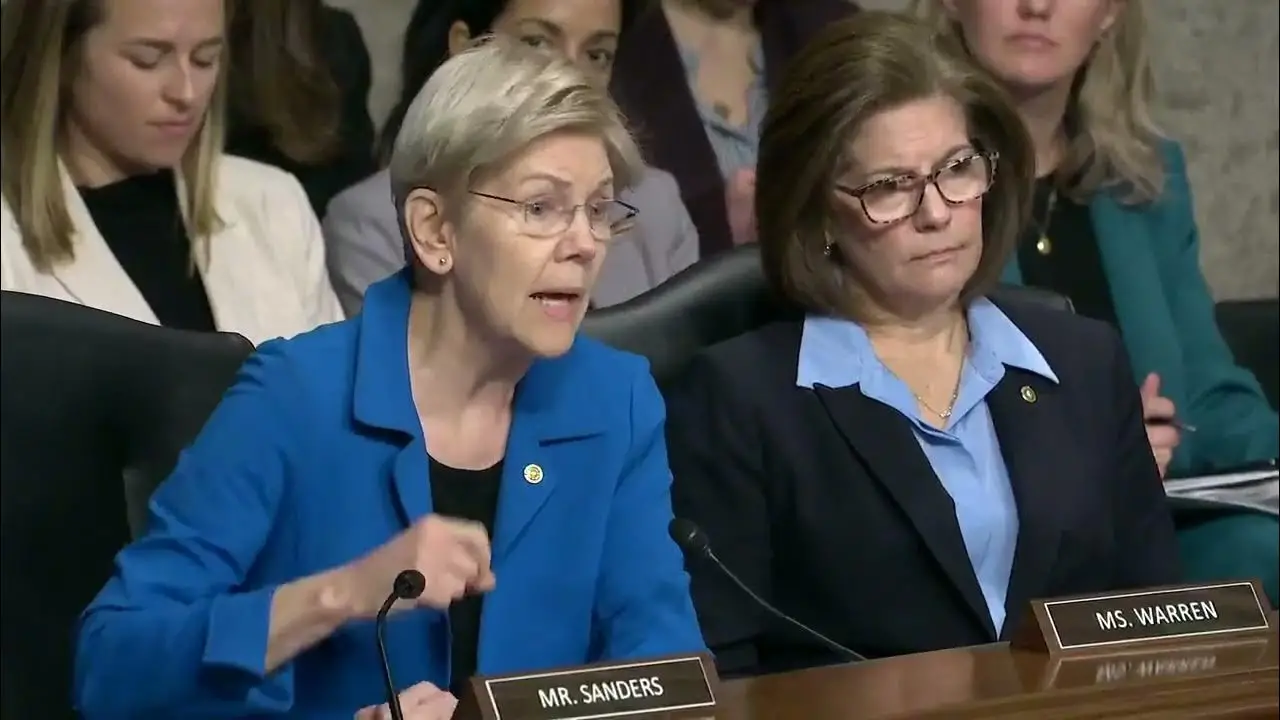In what can only be described as a dramatic moment in American politics, Senator Elizabeth Warren (D-MA) made headlines during Robert F. Kennedy Jr.’s confirmation hearing for the position of Secretary of Health and Human Services (HHS). The hearing, held on Capitol Hill on Wednesday, was expected to be a contentious affair given Kennedy’s long history of outspoken views on health policy. However, few could have predicted the level of intensity that unfolded, with Warren turning the proceedings into a spectacle of political theater.
A Confirmation Hearing Turned Verbal Battleground
As President Trump’s nominee for HHS, Kennedy came prepared to address difficult questions from Senate Democrats. His controversial views on vaccines and pharmaceutical regulation had already been widely debated in the public sphere, and his nomination was expected to face fierce opposition. However, rather than engaging in a substantive discussion about Kennedy’s qualifications and policy positions, Senator Warren’s approach quickly devolved into an aggressive and, at times, combative exchange.
From the outset, it was clear that Warren was not there for a balanced discussion. Interrupting Kennedy repeatedly, she refused to allow him to complete his statements, often speaking over him in an attempt to control the narrative.
“You’re asking me not to sue vaccine companies,” Kennedy said at one point, attempting to clarify her line of questioning.
“No, I am not!” Warren shot back, her voice rising in intensity.
The Heart of the Debate: Kennedy’s Stance on Vaccines
One of the most heated moments of the hearing came when Warren accused Kennedy of using his position to undermine vaccine access and benefit financially from it.
“Look, no one should be fooled here,” Warren declared. “As Secretary of HHS, Robert Kennedy will have the power to undercut vaccines and vaccine manufacturing across our country. Kennedy can kill off access to vaccines and make millions of dollars while he does it. Kids might die, but Robert Kennedy can keep cashing in.”
Her statement drew immediate pushback from Kennedy, who countered that his position on vaccines has been misrepresented in the media. “I am not anti-vaccine. I am pro-safety,” Kennedy clarified. “I have always advocated for rigorous testing and transparency, not for the elimination of vaccines altogether.”
Kennedy’s comments align with previous public statements in which he has emphasized his support for medical freedom and informed consent while criticizing what he sees as a lack of accountability in the pharmaceutical industry.
A Contentious Political Climate
Kennedy’s nomination comes at a particularly turbulent time in American politics. Having initially launched an independent presidential campaign in 2024, Kennedy later suspended his run and threw his support behind former President Trump. His nomination to lead HHS has only further fueled debate within both political parties.
Republican senators, for the most part, have backed Kennedy, viewing his skepticism of corporate influence in medicine as a positive trait. However, there is concern that a few key Republican votes, including that of Senator Bill Cassidy (R-LA), could determine Kennedy’s fate. Cassidy, a physician, has been hesitant to fully endorse Kennedy, citing concerns about past statements related to vaccines and public health measures.
The Road Ahead: What Happens Next?
Kennedy’s confirmation process is far from over. He still faces a courtesy hearing before the Senate Health, Education, Labor, and Pensions (HELP) Committee on Thursday. If he fails to secure enough votes from the committee, the Trump administration may attempt alternative strategies to push his confirmation forward.
In his closing remarks, Kennedy sought to reassure both the committee and the American public of his intentions. “I will not take away anybody’s vaccines,” he said. “My goal is to ensure that public health policies are based on transparency, accountability, and the highest standards of scientific integrity.”
His statement, however, did little to appease his critics. Warren and other Senate Democrats remain firm in their opposition, arguing that Kennedy’s past rhetoric on vaccines and pharmaceutical companies disqualifies him from leading the nation’s health agency.
As the confirmation process continues, one thing is certain: Kennedy’s nomination has become a flashpoint in the ongoing debate about the role of government in healthcare and the influence of corporate interests in public policy.

